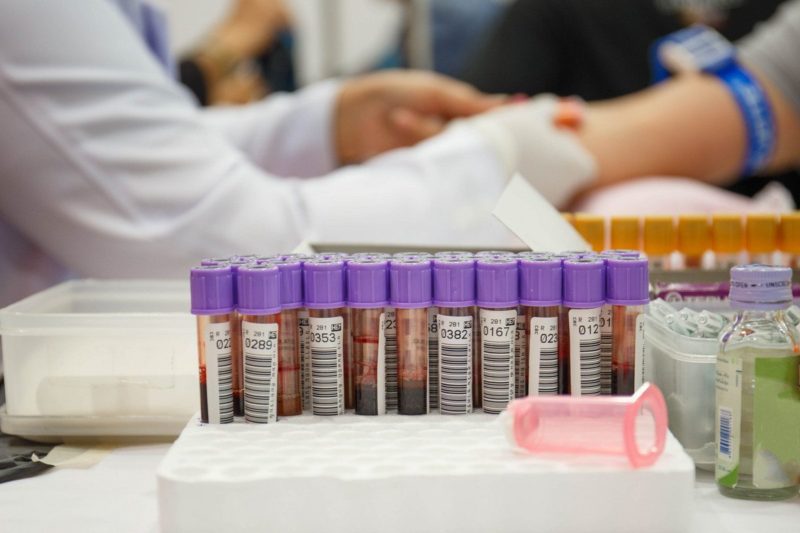Know Your Status: Working to Destigmatize Routine STI Screening
April marks STD Awareness Month and the Get Yourself Tested campaign: There is no time like the present to check your status, discuss testing with your sexual partner, and talk about safer sex with your provider.

“Would you like screening for sexually transmitted infections today?”
As an obstetrician and gynecologist, it is a question I ask multiple times a day to the patients I see in my office. Most patients think about my question for a moment, maybe look down at the floor or nervously check their smart phone, and then say “sure!” The question is a simple one but it is obvious that, for some patients, sexually transmitted infection (STI) testing carries the weight of stigma or embarrassment.
Although the Centers for Disease Control and Prevention (CDC) recommends routine STI testing for all women under the age of 25, STI cases in all age groups are on the rise, as indicated in a recent report. In 2014 alone, there were approximately 350,000 new cases of gonorrhea and more than 1.4 million new cases of chlamydia. Unfortunately, many of these infections may go untreated or undiagnosed and can have detrimental health effects, particularly among women who can experience disseminated infections requiring hospitalizations, infertility, and pelvic inflammatory disease.
So, whether they are age 17 or 45, in the women’s clinic or the community health center, everyone I see is offered the opportunity—and encouraged—to check their STI status.
And it’s not just women or young people who should get tested. In February, the CDC released a study finding that half of gay and bisexual Black men and a quarter of gay and bisexual Latino men will be diagnosed with HIV in their lifetimes. As a health-care provider, I believe that encouraging everyone to know their STI status, regardless of their sexual orientation or gender identity, can not only prevent serious medical conditions, but can encourage safe and healthy sexual practices.
It’s important, however, for everyone to understand: Both patients and providers have an important role to play in destigmatizing routine STI screening.
We as physicians can do a better job at creating a safe environment for patients to ask questions about sex and sexuality. One study suggested that when physicians do discuss sexual health issues with adolescents, the discussion averages 36 seconds. When the topic of sexuality is discussed in the health-care setting, fewer than 10 percent of young people reported receiving information on STIs and HIV from their provider.
Surveys of U.S. teens and young adults show that these group, which are greatly affected by STIs, understand the importance of routine testing. One survey found that 81 percent of youth reported thinking that people who get STI testing are taking care of their sexual health; 58 percent said they are responsible partners, and 56 percent said they do it regularly as part of their routine health care. When asked by a sexual partner about getting STI screening together, 78 percent said they would be glad a test was suggested and 89 percent thought it reflected their partner being responsible.
However, significant barriers may exist that are keeping adolescents and young adults from knowing their STI status, like access to care. Though all 50 states allow minors to get STI screening without parental notification, young people may face barriers to accessing clinics in general or fear their parents will be notified they are requesting STI services (as at least 18 states allow physicians to do so).
Research shows us that confidentiality and of course stigma can exist around getting tested, which may prevent a person—especially a young person—from knowing their STI status. A 2014 study published in JAMA Pediatric reported that one-third of teens did not talk about sex or sexuality during their annual visits with their health-care provider and many teens felt uncomfortable talking with their provider about topics including sexuality and STIs.
As a patient, you should not hesitate to bring up questions about STI screening as well as your general health with your provider. If you do feel uncomfortable asking these questions and requesting screening with your provider, you can always go to a local Planned Parenthood or other health centers that openly offer screening.
April marks STD Awareness Month and the Get Yourself Tested campaign spearheaded by a partnership between the Kaiser Family Foundation, MTV, Planned Parenthood, and other organizations. There is no time like the present to check your status, discuss testing with your sexual partner, and talk about safe sex with your provider. Whether getting tested with a primary care physician, an OB-GYN, or at a local health center, taking this step is an important part of taking care of your health and is generally quick and easy. A routine STI check can be completed by a simple urine test and blood test in most health centers.
As providers, asking about STI screening should be routine and offered to all patients. This helps to open the conversation to your patients about their sexuality and may prompt further discussion about safer sex. The message is a simple one: getting tested is part of staying healthy and taking care of your body.
Remember that sexuality is a natural and healthy part of life and is an important component of physical and emotional development. Everyone deserves good sex: sex that is consensual, healthy, pleasurable, safe, and respectful. Having a healthy sexuality also includes knowing your STI status.
Full disclosure: Dr. Megan Evans is on the Young Friends Steering Committee of Planned Parenthood.
